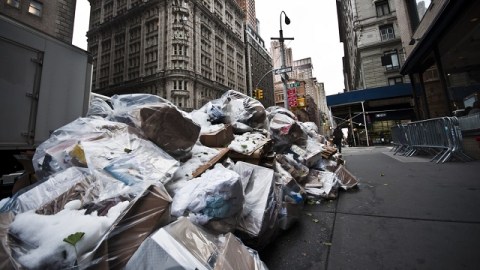How Our Minds Keep Us From Recycling More

What’s the Latest Development?
A new paper published in Journal of Consumer Research suggests that one barrier preventing people from recycling more items is the inability to distinguish between something that’s useless — that is to say, trash — and something that still has value even though it may no longer be working or intact. As part of the research, participants were given paper and a pair of scissors. Some were told to cut up the paper, while others were told to leave the paper intact. All were asked to dispose of the paper when they left the room, and two baskets — one for trash, one for recycling — were placed near the exit for that purpose. Those who cut up the paper were more likely to put the pieces in the trash basket.
What’s the Big Idea?
Despite the increased presence of recycling in everyday life, from special bins in stores to municipal pick-up and drop-off programs, Americans still manage to throw away more potentially recyclable material than people in other countries. Authors Remi Trudel and Jennifer J. Argo say that their research demonstrates the need for private and public organizations to more thoroughly examine the psychological processes that affect consumers’ behavior and adjust their efforts accordingly.
Photo Credit: Shutterstock.com




